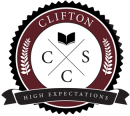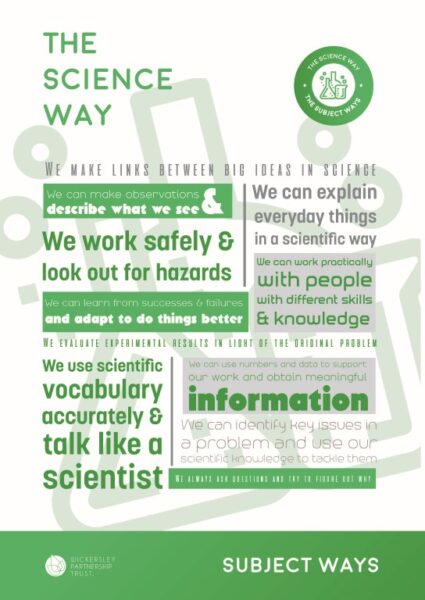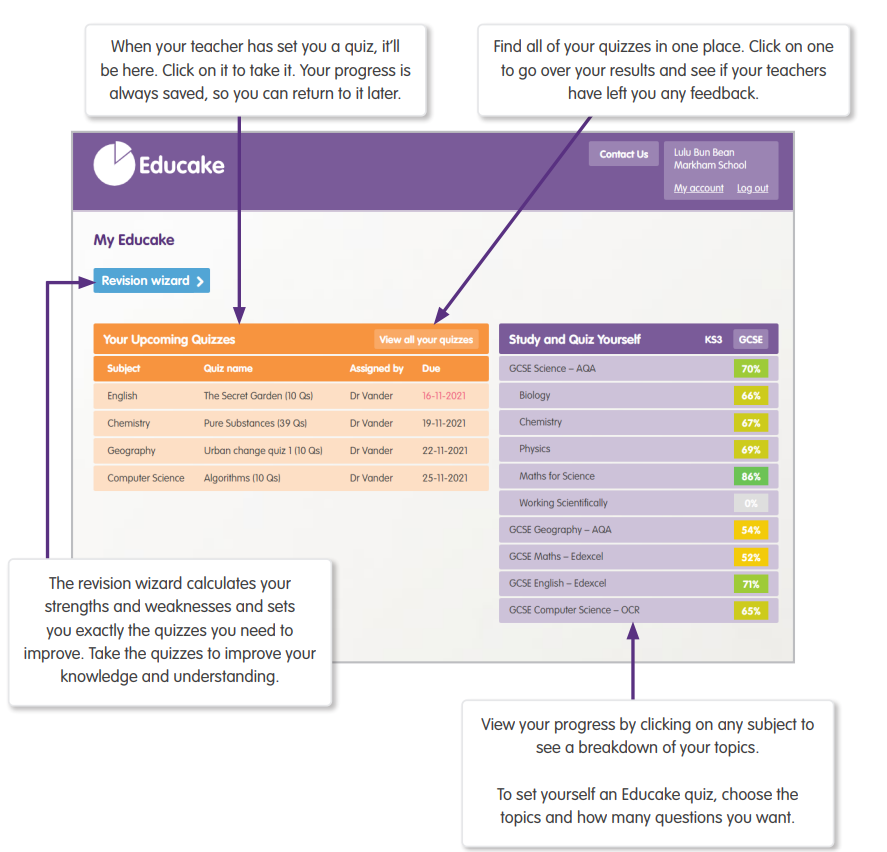curriculum
Science
The Subject Way
Firstly, to teach students the vital skills they need to achieve their full potential and gain the very best grades they can. Secondly, to teach students how each subject relates to the wider world, incorporating the life skills they will learn.
It is our belief that knowing how what you learn links to the wider world brings a subject to life and therefore improves overall understanding and engagement.
Why study Science?
Science affects your life in many ways – the clothes you wear may include man-made fibres, the food you eat may contain chemical colourings, household appliances contain electric circuits.
All Science courses encourage you to acquire a body of scientific knowledge and develop an understanding of Science including its power and limitations; develop experimental and investigative abilities; develop an understanding of the nature of scientific ideas and activity and the basis for environmental applications of Science and of the economic and social implications of these.
What will I learn about?
An equal amount of Biology, Chemistry and Physics are studied in all Science courses.
You will develop an understanding of how Science works and learn how to use scientific evidence to answer questions such as:
- What the possible risks are of giving children vaccinations?
- When is it economical to extract metals from their ores?
- How can radioactive tracers be used to detect forged bank notes?
To do this you will develop and improve your scientific communication skills by using different approaches to presenting information including using the Internet.
How will I be assessed?
6 Exams in Year 11 – both Combined and Triple Science.
All GCSE courses begin to be taught in Y9. Most students will study Combined Science. In this course, students study Biology, Chemistry and Physics, and are assessed through 6 exams in Year 11. Students leave school with two GCSEs in Science.
Those students who are chosen to study Triple Science will also study Biology, Chemistry and Physics, but do so in greater depth. Again, assessment is through 6 exams at the end of Year 11.
Students who study Triple Science will leave school with three separate GCSEs in Biology, Chemistry and Physics.
What do employers think about the subject?
For many careers, good Science qualifications are essential.
These include careers such as Nursing and Health Care, Child Development, Engineering, Architecture and Construction, Surveying and any other careers that have a technical aspect.
Employers at all levels see Science as a desirable qualification, as it shows that students are able to demonstrate a wide variety of skills essential in the workplace, such as analysis and interpreting data, applying knowledge and researching.
What are some of the skills I will gain?
In Science you will develop your ability to:
- Plan strategies to develop and test ideas
- Select, organise and present information clearly and logically
- Analyse critical data using knowledge and understanding
- Use ethical, moral, social and economic reasons to explain your ideas
Year-by-Year Subject Breakdown
In Year 7 your child will study:
- Cells
- Structure and Function
- Reproduction
- Particles and their behaviour
- Elements, Atoms and Compounds
- Reactions
- Acids and Alkalis
- Forces
- Light and Sound
- Space
Your child’s progress will be assessed using in-class quizzes and tests, summative assessments at the end of each half term and a cumulative test at the end of the year, which will test everything they have learnt throughout Year 7.
Typical homework your child might get in Year 7 is:
- Online quizzes
- Short and longer style questions
In Year 8 your child will study:
- Health and Lifestyle
- Ecosystems
- Adaptation and inheritance
- Periodic Table
- Metals and Acids
- Separation Techniques
- The Earth
- Electricity and Magnetism
- Energy
- Motion and Pressure
Your child’s progress will be assessed using in-class quizzes and tests, summative assessments at the end of each half term and a cumulative exam at the end of the year, which will test everything they have learnt throughout Year 8.
Typical homework your child might get in Year 8 is:
- Online quizzes
- Short and longer style questions
In Year 9 your child will study:
- Cell Biology
- Organisation
- Infection and response
- Atomic Structure
- Bonding and Structure
- Quantitative Chemistry
- Energy
- Electricity
- Particle Model
Your child’s progress will be assessed using in-class quizzes and tests, summative assessments at the end of each half term and a cumulative test at the end of the year, which will test everything they have learnt throughout Year 9.
Typical homework your child might get in Year 9 is:
- Online quizzes
- Short and longer exam-style questions
In Year 10 your child will study:
- Bioenergetics
- Homeostasis and Response
- Inheritance
- Chemical Changes
- Energy Changes
- Rate and extent of chemical change
- Organic Chemistry
- Atomic Structure
- Forces
- Waves
Your child’s progress will be assessed using in-class quizzes and tests, summative assessments at the end of each half term and a mock exam at the end of the year, which will test everything they have learnt throughout Year 10.
Typical homework your child might get in Year 10 is:
- Online quizzes
- Short and longer exam-style questions
- Revision activities, e.g. making note cards on specific topics
In Year 11 your child will study:
- Ecology
- Chemical Analysis
- Chemistry of the Atmosphere
- Using Resources
- Magnetism
- Space (Triple Science)
Your child’s progress will be assessed using in-class quizzes and tests, summative assessments at the end of each half term and mock exams at two set points during the year, which will test everything they have learnt throughout Year 11.
Typical homework your child might get in Year 11 is:
- Online quizzes
- Short and longer exam-style questions
- Revision activities, e.g. making note cards on specific topics
Department Staff
J Schofield
Head of Department
- jschofield@cliftonschool.org
D Krolak
N Devine
C Gurran
S Baker
F Shah
J Turner
E Ali
M Munir
Educake
What is Educake?
Educake is an online learning system for schools. Pupils can use it on a PC, tablet or smartphone by going to www.educake.co.uk.
Teachers might set quizzes on Educake for classwork or for practice at home. Quizzes can be retaken as many times as pupils want to improve their score. Every question is auto-marked, and pupils get instant feedback. Educake is all about progress and positivity.
Pupils also have the opportunity to learn independently. The “Practice” button shows them which topics they need to work on and creates personalised quizzes for them.
Educake Student Video
Educake Parent & Carer Information
Here’s a short video that gives parents & carers a quick overview of Educake.
Find out more
If you would like more information about our curriculum, please contact Mrs Leng, Headteacher using the details on our contact page.





